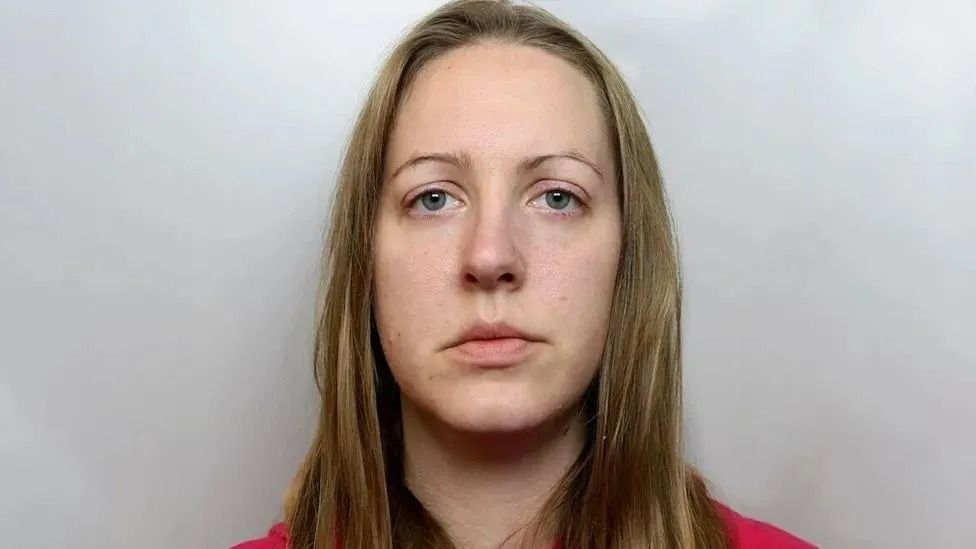Senior medical experts have challenged prosecution evidence linking Lucy Letby to the deaths of a number of babies and raised serious questions about her defence in court. One world renowned neonatologist told the BBC Radio 4’s File on Four that he was ‘very confident’ that one of the babies died a natural death and dismissed the prosecution case as ‘a wild hypothesis’. It was also claimed that’s an x-ray seemingly indicating that the nurse deliberately pumped air into that child’s feeding tube was taken before the nurse met the baby.
Lucy Letby was found guilty of murdering seven babies and attempting to kill six others at the Countess of Chester Hospital in a trial last year. Immediately after reporting restrictions were lifted following the completion of a second trial this year in which she was convicted of attempted murder, experts raised concerns about the safety of the conviction – several spoke to the Justice Gap. Last month, Lady Justice Thirlwall opened the inquiry into the deaths at the Countess of Chester Hospital with criticism of the ‘huge outpouring of comment from a variety of quarters on the validity of the convictions’. ‘So far as I’m aware, it has come entirely from people who were not at a trial,’ she said. ‘All of this noise has caused enormous additional distress to the parents who have already suffered far too much.’
Dewi Evans, the consultant paediatrician and expert witness who was instrumental in convicting Letby, told the BBC that those challenging the verdict were ‘grossly irresponsible’ and their conduct was ‘quite frankly disgraceful.’
The programme, which was broadcast last night, spoke to one of the 280 medical professionals who signed a letter delivered to prime minister Keir Starmer as ‘part of the campaign in support of Lucy questioning the evidence that’s been used in court against her’. ‘Nurses are now speaking out, and they are frightened,’ she told the BBC. ‘They feel they’ve lost their voice. They feel that they are no longer the patient-advocate. They feel that they have no duty of candour, and it is important that they are able to speak out and raise concerns.’
File on Four looked at a number of individual cases including Baby C born 10 weeks premature and weighing just under two pounds. Letby was found guilty of deliberately injecting air into the child’s stomach via his feeding tube. Professor Colin Morley, a world renowned expert in neonatology, reviewed the evidence heard in court. Morley identified intestinal obstruction as the cause of death. Reporter Stephanie Hegarty said: ’You’re saying quite clearly here, you believe this baby died of natural causes. How confident are you of that?’ Morley replied he was ‘very confident’.
‘Clinically, the baby did have a bowel obstruction. I’m devastated for the families. Nothing is worse than losing your precious baby, and they’ve been told that the baby was murdered by Lucy Letby, which is awful. But my job is to tell the truth about what I think has happened. I just don’t believe this wild hypothesis based on no evidence whatsoever, that somebody inflated the stomach enough to kill the baby.’
Prof Colin Morley
An X ray of the Baby C’s stomach showing a huge bubble was one of the key pieces of evidence indicating air had been pumped deliberately via a feeding tube. It was claimed Letby had not met the baby by the time that the X ray was taken.
The programme also looked at other deaths including Baby F and Baby L. Letby was convicted of attempting to murder both by adding insulin to their feedbags on the basis of results from a test. Immunoassay results indicated insulin levels were abnormally high and the prosecution said the results proved they’d been poisoned by insulin. Dr Adel Ismail, a world leading expert on the immunoassay test, said that the test can produce ‘misleading results’. ‘If I have the slightest suspicion, the slightest, I would do a follow-up test to confirm the integrity and the veracity of the measurements. That confirmatory test is absolutely vital.’ He was asked if this test shouldn’t have been relied upon in court ‘without proper verification’. Ismail replied that he wouldn’t have even forwarded the results to clinical colleagues ‘without verifying the velocity and integrity’.
It had been argued in court that it would have only taken a small amount of insulin to have killed each baby. However leading experts – Professor Geoff Chase, from the University of Canterbury in New Zealand and chemical engineer Helen Shannon – argued that significantly higher quantities of insulin would be needed to have harmed the babies and, in the case of Baby L, as much as 20-80 times more.
The program also heard from one of Britain’s most senior pathologists with 25 years’ experience who spoke out about the lack of expert witnesses for the defence. She was not named because she deals with bereaved families. She said she dealt with 500 deaths a year including many neonatal deaths. ‘So I think that I have quite robust expertise,’ she added. She reviewed the case of Baby O and agreed with an original post-mortem – death by natural causes from a liver injury. ‘I’m not saying that she’s innocent or she’s guilty. What I’m saying is that the way that the pathology was presented is not convincing to me as a pathologist.’







